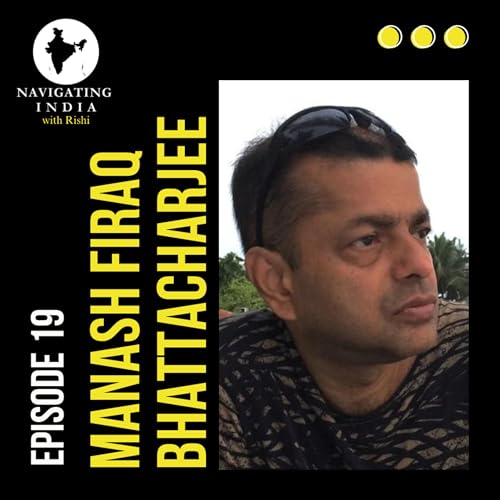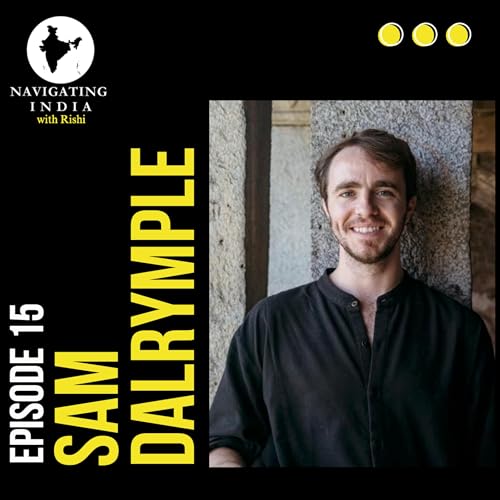Why is Periyar E.V. Ramasamy Naicker, who passed away over half a century ago, still a controversial yet unavoidable and crucial figure in Tamil Nadu? While this year marks 100 years of the Self-Respect Movement, initiated by Periyar, he was also labelled anti-national, anti-Hindu, anti-Brahmin, and anti-Dalit, generating extreme hate and accusations. Who was Periyar? How did his ideas evolve? What are his key contentions? Did he want a separate country? What was his relationship with Ambedkar, Annadurai, and Kamaraj? How did he leave a lasting impact on the people of Tamil Nadu? In this episode, I’m joined by A. R. Venkatachalapathy and Karthick Ram Manoharan to delve deeper into the life and ideas of Periyar.References:The Cambridge Companion to Periyar, Edited by A. R. Venkatachalapathy and Karthick Ram ManoharanA. R. Venkatachalapathy: Profile, XKarthick Ram Manoharan: Profile, XBooks by A. R. Venkatachalapathy: In Those Days There Was No Coffee, Swadeshi Steam: V.O. Chidambaram Pillai and the Battle against the British Maritime Empire, Who Owns that Song?: The Battle for Subramania Bharati’s Copyright, Tamil Characters: Personalities, Politics, Culture, The Province of the Book: Scholars, Scribes, and Scribblers in Colonial Tamilnadu, The Brief History of A Very Big Book: The Making of the Tamil EncyclopaediaBooks by Karthick Ram Manoharan: Periyar: A Study in Political Atheism, Frantz Fanon: Identity and ResistanceDravidian Movement and Saivites, 1927-1944 by A. R. VenkatachalapathySudras and the Nation: Periyarist Explorations, Freedom from God: Periyar and Religion, In the path of Ambedkar: Periyar and the Dalit question by Karthick Ram ManoharanM.S.S. Pandian: Denationalising the Past-Nation in E V Ramasamy's Political Discourse, Brahmin and Non-Brahmin: Genealogies of the Tamil Political Present V Geetha: Periyar, Women and an Ethic of Citizenship, Towards a Non-Brahmin Millennium: From Iyothe Thass to Periyar (Co-authored with S.V. Rajadurai)Anandhi S.: Women’s Question in the Dravidian Movement c. 1925-1948Robert L Hardgrave Jr: The Nadars of Tamilnad: The Political Culture of a Community in Change Selig S. Harrison: Caste and the Andhra CommunistsLloyd I. Rudolph and Susanne Hoeber Rudolph: The Political Role of India’s Caste AssociationsB.R. Ambedkar: Annihilation of Caste (An Introduction by Arundhati Roy)Vignesh Rajahmani: The Dravidian Pathway: How the DMK Redefined Power and Identity in South IndiaEpisode 18: The Dravidian Pathway: How the DMK Redefined Power and Identity in South India by Vignesh RajahmaniD. Veeraraghavan: Half a Day for Caste? Education and Politics in Tamil Nadu, 1952-55 Nellai R. Jebamani, Cho Ramaswamy, Maraimalai Adigal, K. Veeramani, Maniammai, C.N. Annadurai, K. Kamaraj, J. JayalalithaaBipin Chandra, Aditya Mukherjee, Ranajit Guha, Partha Chatterjee, K. A. Nilakanta Sastri, D.D. Kosambi, Romila Thapar, M.N. Srinivas, Namdeo Dhasal
Voir plus
Voir moins
 Nov 29 20252 h et 51 min
Nov 29 20252 h et 51 min Nov 18 20252 h et 9 min
Nov 18 20252 h et 9 min 1 h et 23 min
1 h et 23 min Sep 10 20251 h et 23 min
Sep 10 20251 h et 23 min 1 h et 2 min
1 h et 2 min Aug 13 202559 min
Aug 13 202559 min Jun 27 202542 min
Jun 27 202542 min
